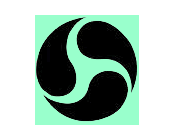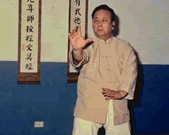

Xingyiquan Frequently Asked Questions -
What does Xingyiquan mean and what is it?
Xingyiquan literally translates to mean Form and Mind/Intent Fist. It emphasizes the use of combining form/body/movement together with one's mind and intent. It is considered one of the three main internal martial arts of China, along with Baguazhang and Taijiquan.
How is Xingyiquan different than other martial arts?
Xingyiquan stresses centerline, direct attacks and simplicity. The basics of Xingyiquan only consist of standing meditation and the five elements (five basic forms that each embody a concept of movement). From there the art will expand to include more techniques and ideas while studying the animal forms, linking forms and two person forms, as well as deeper study into standing meditation, fighting and application.
Of the three Chinese internal martial arts, there are many who have said that Xingyiquan is often the quickest to learn. One advantage that Xingyiquan does have in that regard is its emphasis in the beginning on a low quantity of movements done to a very high quality.
What is an "Internal" martial art?
There is some debate as to the definition of an internal martial art. My feeling is that the differences are not so much in terms of black and white, yes or no, but in terms of degree. Internal arts will stress the development of the mind and mind/body connection much sooner and to a greater degree than external martial arts. Internal martial arts will also emphasize a constant use of cohesive whole-body power from the frame and structure of the body.
How are your classes structured?
Although each class will change depending on the needs of who is in class on that day, one is likely to see a heavy concentration on basic qigong and conditioning, standing meditation, basic movement and footwork practice, along with the practice of the five elements. Each class will also emphasize the use of the movements in fighting and application. For students who have been studying the basic five elements for a good amount of time and who have demonstrated understanding of their use, there are also various types of free sparring practices.
Should I also take the Xingyiquan classes along with my study of Baguazhang?
In our Yizong school, Baguazhang and Xingyiquan have traditionally been taught alongside one another. My teacher practices both Bagua and Xingyi, his teacher practiced both, his teacher's teacher practiced both, and so on. Study of both, in my opinion, can only make you a more well-rounded martial artist. Furthermore, study of both will help you to understand each individual art much more fully.
Will I learn to fight? Or will there be free-sparring taught?
Yes. The goal of these classes, however, is to learn to use the art of Xingyiquan in a combat situation. This is a not a quick-fix self defense class or a kickboxing class.
Are private classes available?
Individual private lessons and small group classes are available outside of normal class times by request. The base price for individual private lessons is $70 per hour. Small group class costs will be given on a per instance basis.
What does Zong Wu Men mean?
The name " Zong Wu Men " is reminiscent of the names of traditional martial arts schools in old China. It was chosen for its personal meaning, to me, as the name of my school.
The first character " zong " is a complicated character. It has various, but related meanings, including origin, religion, worship, ancestor, family, admire, follow, emulate, and primary. This character is also the same character as that of our lineage of Baguazhang, Yi Zong Bagua Men, and therefore pays homage to my lineage of martial arts.
The character " wu " means martial. Martial - martial arts, as in war and fighting. The character itself can be broken down into separate parts to mean "(to) stop spear(s)." This character was chosen for its reference to the fighting aspects of the arts. At their heart, the internal martial arts are just that: MARTIAL arts. They were born in and of combat. To lose that is to lose their soul.
The final character " men " literally means the door or gate. In traditional Chinese society it would often refer to those who had entered the gate to come inside - those who had been accepted into a society apart from the rest of the community. It therefore is similar in meaning to a school or group of people together for a common purpose. Here it specifically means a martial arts school or lineage.
Click here to send an email to George Wood for more information, or to request instruction.
Contact George Wood by email at george@yizongbagua.com
